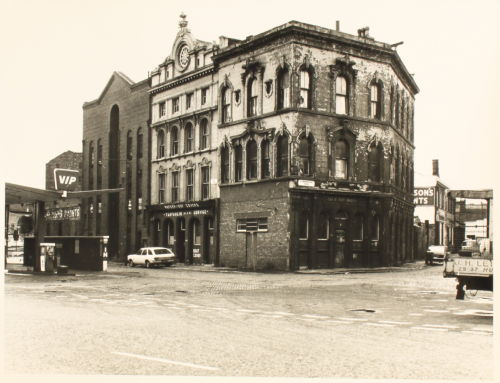25 Hurst Street
|
Hurst St, close to the Liverpool docks, was the hub of Liverpool’s Basque and Galician communities from the 1870s until the area began to be cleared in the 1920s. Hundreds, if not thousands, of Basque and Galician sailors and migrants passed through its boarding houses and private homes. The first record of a Spanish boarding house in the block leading up to the corner of Hurst Street and Carpenter's Row is the 1891 census, which records José García and Tomasa Uresti, boarding house proprietors, at no. 19 Hurst Street. José and Tomasa had two Spanish-born live-in servants, Dominga Mosquera and Maria Torcuato, and six boarders, all Spanish sailors likely from the same ship's crew. After 1891, the address of José and Tomasa's boarding house moves to 25 Hurst Street, where records show the Spanish boarding house shared an address with the long-established Ellesmere Hotel. After José's death in 1899, Dominga Mosquera and her husband Joaquín Suárez took over the boarding house. The Suárez Mosquera family remained at 25 Hurst Street until well into the 20th century. |
No. 25 Hurst Street (centre, with ship's wheel) in 1973. Image: Liverpool Record Office
|
|
Who stayed at 25 Hurst Street?
|
1901 census
|
1911 censusOn census night (2 April), Dominga and Joaquín's household included servants Asunción Francos and Concepción Mosquera (Dominga's niece), as well as 20 Spanish sailors: 11 firemen, 2 stewards, a second cook, and 6 seamen. Again, there are plenty of Galician surnames, including Branderis, Carballido, Arez, Maceira, Manteiga, Yanes, Pan, Otero, Figueiroa, Pinero and Quireiro. |

